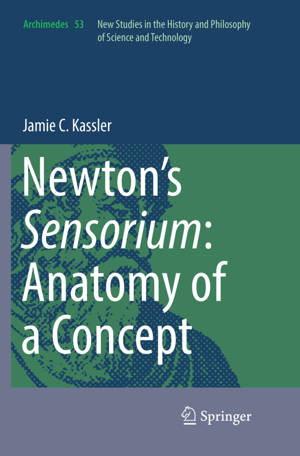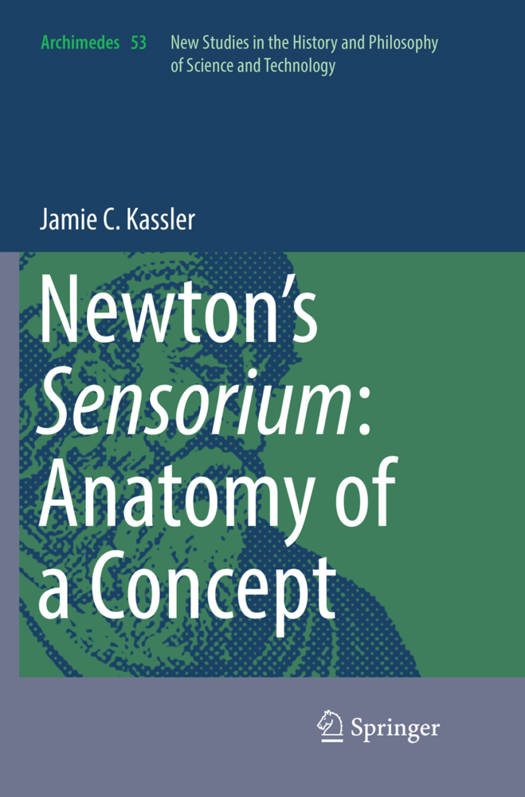
- Retrait gratuit dans votre magasin Club
- 7.000.000 titres dans notre catalogue
- Payer en toute sécurité
- Toujours un magasin près de chez vous
- Retrait gratuit dans votre magasin Club
- 7.000.0000 titres dans notre catalogue
- Payer en toute sécurité
- Toujours un magasin près de chez vous
Description
These chapters analyze texts from Isaac Newton's work to shed new light on scientific understanding at his time. Newton used the concept of "sensorium" in writings intended for a public audience, in relation to both humans and God, but even today there is no consensus about the meaning of his term. The literal definition of the Latin term 'sensorium', or its English equivalent 'sensory', is 'thing that feels' but this is a theoretical construct.
The book takes readers on a process of discovery, through inquiry into both Newton's concept and its underlying model. It begins with the human sensorium. This part of his concept is situated in the context of the aforesaid writings but also in the context of the writings of two of Newton's contemporaries, the physicians William Briggs and Thomas Willis, both of whom were at the forefront of their respective specialties of ophthalmology and neurology. Only once the human sensorium has been explored is it possible to generalize to the unobservable divine sensorium, because Newton's method of reasoning from experience requires that the second part of his concept is last in the order of knowledge. And the reason for this sequence is that his method, the short-hand term for which is 'analogy of nature', proceeds from that which has been observed to be universally true to that which is beyond the limits of observation. Consequently, generalization passes insensibly into reasoning by analogy.
Readers will see how certain widespread assumptions can be called into question, such as that Newton was a theological voluntarist for whom the will is superior to the intellect, or that, for Newton, not only the world or universe but also God occupies the whole extent of infinite space. The insights afforded through this book will appeal to scholars of the philosophy of science, human physiology, philosophy of mind and epistemology, among others.
Spécifications
Parties prenantes
- Auteur(s) :
- Editeur:
Contenu
- Nombre de pages :
- 190
- Langue:
- Anglais
- Collection :
- Tome:
- n° 53
Caractéristiques
- EAN:
- 9783030101527
- Date de parution :
- 15-01-19
- Format:
- Livre broché
- Format numérique:
- Trade paperback (VS)
- Dimensions :
- 156 mm x 234 mm
- Poids :
- 312 g

Les avis
Nous publions uniquement les avis qui respectent les conditions requises. Consultez nos conditions pour les avis.






